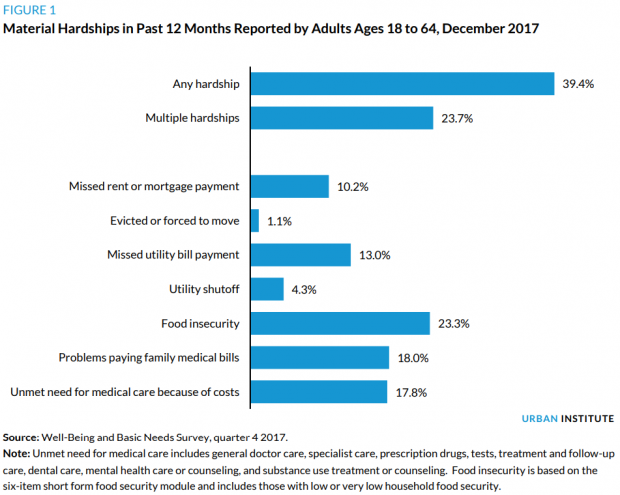President Trump has touted the strength of the economy this summer, claiming that he “unleashed an economic miracle” by signing tax cuts into law and boasting that this "may be the best economy in the history of our country."
The economy is certainly strong — but it’s not as exceptionally robust as Trump has proclaimed, and as Bloomberg reports, many Americans feel that they aren’t personally benefitting from the recent uptick in growth. Bloomberg’s analysis of recent wage trends finds that the big wage increases Republicans promised would result from their tax cuts have yet to materialize. Instead, inflation-adjusted hourly earnings are now slightly lower than they were a year ago. (The administration has argued that the wage numbers are weighed down by lower-wage workers entering the labor force.) And a Quinnipiac University poll released two weeks ago found that, by a 58-38 margin, voters say the Trump administration isn’t doing enough to help the middle class.
“People that depend on wages -- and that’s essentially almost everyone except higher-income or higher-wealth individuals -- are not seeing as much benefit from this economy,” Gregory Daco, head of U.S. macroeconomics at Oxford Economics, told Bloomberg. “People at the lower end of the income spectrum are actually more constrained.”
A large new survey by the Urban Institute offers evidence of the hardships many American families still face. The survey of 7,588 American adults between the ages of 18 and 64, conducted this past December and January, found that nearly 40 percent of adults reported struggling to pay for at least one basic need last year, including food, health care, housing or utilities.
While these difficulties were most common among those with lower incomes, “material hardship extends across the income distribution and affects families both with and without workers,” the authors write. More than 35 percent of families with at least one working adult said they had difficulty meeting at least one basic need.
Why it matters: “The findings in this brief show that the existing safety net programs for families and individuals still leave gaps in the assistance they offer to meet basic needs,” the researchers write. “As policymakers consider changes in access to safety net programs, they run the risk of increasing rates of material hardship, which could have detrimental short- and long-term impacts on children and adults.”






